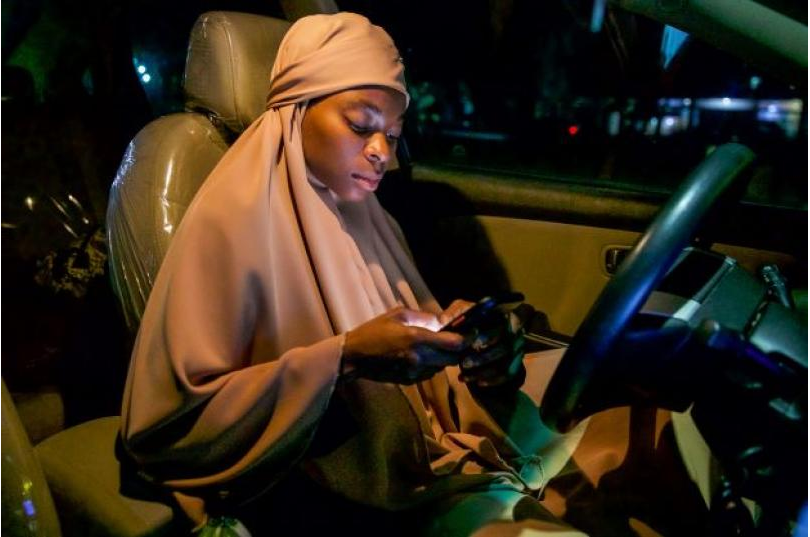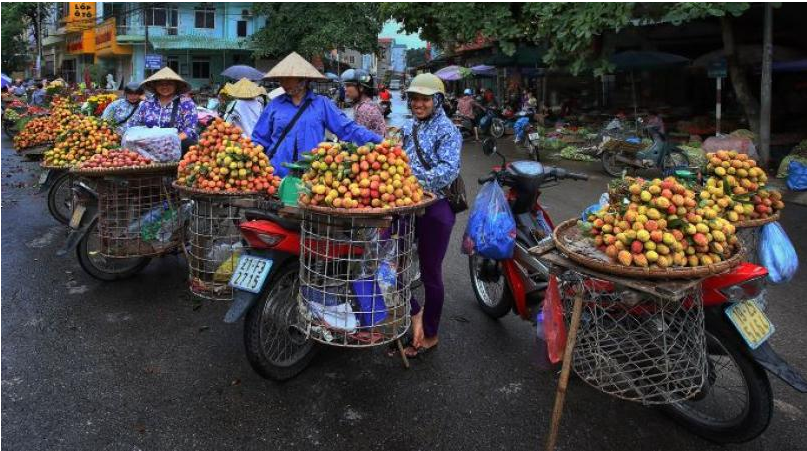Page Content
 Gender
Gender

Image - UN Women
Gender parity in economy and employment is critical for economic growth and societal cohesion. The World Economic Forum estimates that at the current rate of progress, it will take 267.6 years to close the economic gender gap. The World Bank calculates that the gender pay gap costs the global economy USD 160 trillion, and that countries are losing 14% of their wealth, on average, simply because of gender inequality.
Working Aids
SDC
[313 kB]
This SDC guidance sheet outlines key gender issues regarding women’s
economic empowerment in MSD and how these can be integrated in the design, implementation, monitoring and evaluation of cooperation strategies and project interventions. Some existing familiarity with MSD terminology is assumed.
SDC
[6 MB]
This guidance sheet outlines key issues, analytical framework and good practices for mainstreaming socially inclusive and gender responsive budgeting (SIB/GRB) into the design of SDC's programmes and project interventions. The guidance sheet was made by SDC's Gender Equality Network and the Democratization, Decentralization and Local governance Network (DDLGN).
Relevant News
-
19 Dec 2022
-
18 Aug 2022
-
13 Apr 2022
-
07 Sep 2021
 19 December 2022
Podcast Empower! – New episode on how weaving empowers women and preserves cultural heritage in Myanmar In this episode, Nathalie Paarlberg talks about Turquoise Mountain and the work they do with women weavers in Myanmar. Myanmar has a long artisanal tradition of weaving, and Turquoise Mountain ensures that the weavings are spread throughout the world. The organization not only helps female weavers earn an income, but also encourages them to pass on an ancient tradition with special fabrics like silk to the next generation, preserving one of Myanmar's cultural assets. Find all podcasts >> here
 18 August 2022
Two new episodes are out now: Ep. 6: Gender Transformative Approach: changing attitudes towards women's role and responsbilities Ep. 7: Artisanal embroidery - empowering refugee women one stich at a time Find the podcasts >> here
 13 April 2022
Listen to the stories of our colleagues on how they advance Women’s Economic Empowerment (WEE) in their IED projects and programmes, in this ongoing podcast-series. Find the podcasts >> here Ep. 5: Privilege & prjeudice: How to address them for a more just society and women entrepreneurship Ep. 4: Impact, leadership and business support to women in Colombia Ep. 3: Using ancestral and scientific knowledge to empower rural women in Peru for sustainable tourism.
Ep. 2: Better boxes for fruit vendors - a solution that is improving women economic empowerment! Ep. 1: How to ensure gender equality in call for proposal formulation and selection
 07 September 2021
Listen to your colleagues’ stories on how they advance Women’s Economic Empowerment (WEE) in their IED projects and programmes, in this ongoing podcast-series. Find the podcasts >> here Ep. 1: How to ensure gender equality in call for proposal formulation and selection Ep. 2: Better boxes for fruit vendors - a solution that is improving women economic empowerment! Ep. 3: Using ancestral and scientific knowledge to empower rural women in Peru for sustainable tourism. Ep. 4: Impact, leadership and business support to women in Colombia
Relevant Events
-
19 Dec 2023
Eschborn, Germany
-
28 Sep 2021
-
22 Sep 2021
-
02 Jun 2020
Online
19 Dec 2023 in Eschborn, Germany
19 December 2023
19 December 2023
in Eschborn, Germany
19 December in Eschborn, Germany

The goal of the Thementag 2023 is to facilitate an action-oriented exchange among GIZ colleagues, commissioning parties, experts, and development practitioners. It will provide participants with the necessary inspiration, knowledge, and practices to implement feminist development policy in the fields of education, TVET and labour-markets. The conference seeks to answer several questions around the following central theme: How can development cooperation tackle inequalities and boostopportunities in education, TVET and labour market systems within the context of a feminist and inclusive development policy? The End-of-year Conference 2023 will take place at GIZ Eschborn, with up to 150 participants. For those unable to attend in person, a livestream of the plenary session will be available. The invitation to the End-of-year-Conference 2023, including a detailed programme and the link to the registration form, will be sent to you in autumn. Registration is not possible yet. Please direct any requests regarding the End-of-year-Conference 2023 to: thementag2023@giz.de
28 Sep 2021
28 September 2021
28 September 2021
28 September

(time: 9-9.45 am EDT/ 3-3.45 pm Swiss Time) The path to women's financial inclusion has been made difficult by the persistent, but often misguided idea that women tend to have uniform wants and needs. However, women are not a monolith and meeting their financial needs requires developing a nuanced understanding of their preferences and behaviors, which are shaped by age, life stage, location, and contexts, among many other factors.
Join us on September 22 and September 28 for our deep dive conversations with two leading Financial Service Providers that are using innovative ways to respond to women's differentiated needs and preferences as a key to growing their market share and achieving business goals. Access Bank – one of the largest commercial banks in Africa, recognized the potential growth opportunity of the women’s market fifteen years ago and in 2014 formalized this focus through their signature W- Initiative. Using rigorous market research across Nigeria, Access Bank identified three distinct priority segments of women and created specialized customer value propositions that included adapting existing products along with tailored non-financial services. This conversation will be an opportunity to pull back the curtain on why Access Bank choose to focus on the women’s market and how they developed and rolled out the W initiative in their quest for becoming the bank of choice for women in the markets they serve. >> more
22 Sep 2021
22 September 2021
22 September 2021
22 September

(time: 8-8.45 am EDT/ 2-2.45 pm Swiss Time) The path to women's financial inclusion has been made difficult by the persistent, but often misguided idea that women tend to have uniform wants and needs. However, women are not a monolith and meeting their financial needs requires developing a nuanced understanding of their preferences and behaviors, which are shaped by age, life stage, location, and contexts, among many other factors.
Join us on September 22 and September 28 for our deep dive conversations with two leading Financial Service Providers that are using innovative ways to respond to women's differentiated needs and preferences as a key to growing their market share and achieving business goals. In 2018 VP Bank Vietnam became the first Vietnamese bank to adopt a strategy specifically designed for women-owned SME’s. Women make up 25% of VP Bank's current portfolio with innovations such as the SME dashboard, specialized credit card and bundled insurance. In 2019, VP Bank entered into a partnership with CARE to support further outreach to women owned MSME’s by facilitating access to tailored financial products, alternative digital lending channels and a range of non-financial services (training, mentoring, digital capabilities, networks) to improve their business health >> more
02 Jun 2020 in Online
02 June 2020
02 June 2020
in Online
02 June in Online
The Women’s Economic Empowerment (WEE) Working Group and FinEquity are delighted to cohost a 90-minute virtual roundtable discussion on COVID-19 and Women’s Economic Empowerment, with a focus on employment and entrepreneurship. The discussion will explore the impact of COVID-19 in these areas of women’s economic empowerment and how projects and organizations are responding to these challenges in practical ways. The virtual roundtable will serve as an opportunity for members to share actionable insights that can inform the work of others in this space. See here for more information.
|
